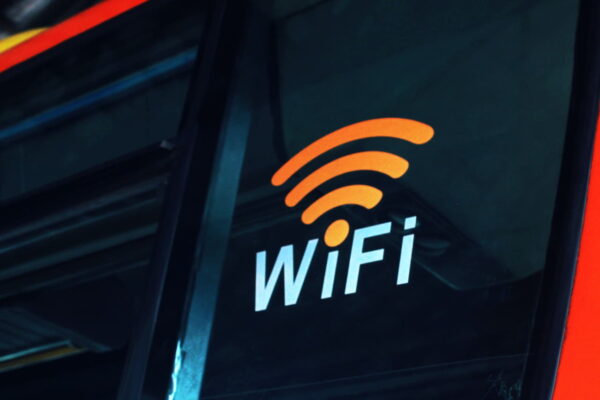✅ Last checked on
In today’s digital age, a fast and reliable Wi-Fi connection is essential for both work and leisure. Slow internet speeds can be frustrating, hindering your online activities. Fortunately, with the right tips and tricks, you can master Wi-Fi speeds and enjoy a smoother online experience.
In this article, we’ll explore various strategies to optimize your Wi-Fi network and boost your internet speed. From simple adjustments to more advanced techniques, we’ve got you covered.
Wi-Fi Speed Tips: Mastering Wi-Fi Speeds

1. Choose the Right Wi-Fi Frequency
Wi-Fi networks operate on two primary frequency bands: 2.4 GHz and 5 GHz. The 2.4 GHz band offers better coverage but can be crowded in densely populated areas. On the other hand, the 5 GHz band provides faster speeds with less interference. Determine the best frequency for your needs and switch accordingly.
2. Secure Your Network
Protecting your Wi-Fi network with a strong password is crucial. Unauthorized users can slow down your connection, affecting your speed. Create a unique, complex password and enable WPA3 encryption for enhanced security.
3. Optimal Router Placement
The placement of your router significantly impacts signal strength. Position it centrally in your home, away from walls and obstacles. Avoid interference from electronic devices like cordless phones and microwaves, which can disrupt the signal.
4. Update Router Firmware
Router manufacturers release firmware updates to improve performance and fix bugs. Regularly check for updates and install them to ensure your router is operating at its best.
5. Clear Channel Congestion
Routers in close proximity can interfere with each other’s signals. Use a Wi-Fi analyzer tool to identify congested channels and switch to a less crowded one for better speeds.
6. Quality of Service (QoS) Settings
Modern routers offer QoS settings that allow you to prioritize certain devices or applications for better performance. Allocate more bandwidth to essential tasks like video streaming or online gaming.
7. Reduce Interference
Bluetooth devices, baby monitors, and other electronics can interfere with Wi-Fi signals. Keep these devices away from your router and devices to maintain a strong connection.
8. Upgrade Your Hardware
Older routers might not support the latest Wi-Fi standards. Consider upgrading to a newer model that offers improved speed and performance.
9. Use Wi-Fi Extenders or Mesh Systems
For larger homes, Wi-Fi extenders or mesh systems can help eliminate dead zones and provide consistent coverage throughout your space.
10. Minimize Background Apps
Background apps and devices using bandwidth can slow down your internet speed. Close unnecessary apps and limit the number of devices connected when you require maximum speed.
11. Clear Browser Cache and Cookies
Regularly clearing your browser’s cache and cookies can improve browsing speed by ensuring you’re loading fresh content.
12. Update Devices and Apps
Outdated devices and apps may not be optimized for the latest Wi-Fi standards. Keep your devices and apps updated to benefit from performance improvements.
13. Ethernet Connection for Critical Tasks
When high-speed internet is paramount, consider using an Ethernet connection instead of relying solely on Wi-Fi.
14. Monitor Network Usage
Use tools provided by your router or third-party apps to monitor your network usage. Identify bandwidth-hogging devices and manage them effectively.
15. External Link to High-Quality Resource
For in-depth information on router settings and troubleshooting, refer to this link.
FAQs
How can I check my Wi-Fi speed?
You can use online speed testing tools like Ookla’s Speedtest or Fast.com to measure your Wi-Fi speed accurately.
Is a Wi-Fi extender better than a mesh system?
Both options have their advantages. Wi-Fi extenders are simpler to set up, while mesh systems provide more seamless coverage in larger areas.
What is QoS, and how does it help?
Quality of Service (QoS) is a feature that allows you to prioritize specific tasks or devices on your network for better performance.
Can too many devices slow down Wi-Fi speeds?
Yes, having numerous devices connected to your Wi-Fi network simultaneously can lead to congestion and slower speeds.
Why do I experience slower speeds during peak hours?
During peak usage times, such as evenings, more users are connected to the same network, leading to reduced overall speeds.
Should I restart my router regularly?
Restarting your router occasionally can help resolve minor issues and improve performance.
Conclusion
Mastering Wi-Fi speeds is a valuable skill in today’s connected world. By implementing these Wi-Fi speed tips, you can optimize your network for faster and more reliable internet speeds. From choosing the right frequency to managing network usage, these strategies will help you achieve a seamless online experience.
Stay connected, stream without interruption, and browse with ease by following these expert tips.